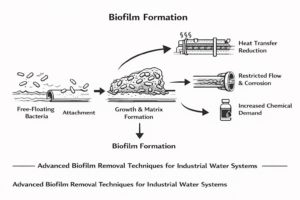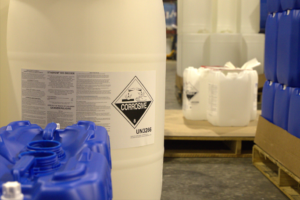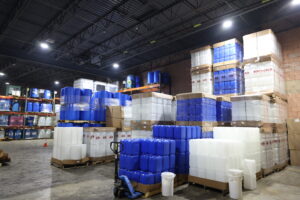In the world of industrial chemistry, chemical blending services form the foundation of countless essential processes. From water treatment and manufacturing to coatings and lubricants, the ability to blend raw materials with precision directly influences quality, safety, and performance. Chemical blending is more than simply mixing components; it involves understanding the chemical interactions, solubility, and stability that ensure each formulation achieves its intended result. Across diverse industries, blending plays a vital role in creating reliable, high-performing chemicals that meet strict operational process requirements. By exploring the fundamentals behind these services, professionals can better appreciate how careful formulation supports both product excellence and long-term system efficiency.
Key Elements of a Successful Blending Operation
Technical Expertise and Precision
Effective chemical blending services rely on a foundation of deep technical expertise. Chemists and engineers evaluate the chemical and physical properties of every component to ensure accurate measurements and controlled reactions. Attention to detail in formulation and blending process design guarantees each mixture meets strict specifications for consistency, stability, and effectiveness.
Quality Control and Safety Measures
Comprehensive quality control systems underpin every stage of production. Each batch undergoes analytical testing, including particle size analysis, pH verification, and stability monitoring. Rigorous safety measures protect both personnel and facilities, while proper labeling, containment, and traceability maintain compliance with industry regulations. These processes are essential to ensuring that the final formulation performs reliably under real-world conditions.
Process Management and Continuous Improvement
A modern blending operation emphasizes controlled processes and continuous improvement. By documenting procedures, monitoring results, and refining methods, companies enhance quality, improve process efficiency, and reinforce long-term client confidence in their blending services.
Also read: Why Chemical Blending Matters in Water Treatment
Applications and Materials Used in Blending
Versatile Applications Across Industries
Chemical blending services support an extensive range of industries, including pharmaceuticals, plastics, coatings, oil, lubricants, and adhesives. Each sector depends on tailored formulations designed to enhance performance, durability, and safety. In water treatment, for instance, specialized blends help prevent corrosion, control scale, and maintain optimal system performance.
Common Materials and Additives
Blending facilities handle a variety of essential chemicals such as hydrogen peroxide, sulfuric acid, citric acid, amine oxide, and denatured alcohol. Additional components like calcium formate are often used to modify reactivity or stability. The precise ratios and properties of these ingredients determine the quality and reliability of the final product.
Blending for Specialized Performance
From custom chemical blending to compounding for high-value formulations, this process ensures that each mixture aligns with a client’s operational goals, material compatibility, and environmental considerations.
Inside ETI: Applying Science to Service
A Legacy of Technical Excellence
As one of the leading chemical blending companies in the Mid-Atlantic region, ETI combines scientific precision with a deep understanding of client operations. Since 1986, the company has continued to provide blending services that emphasize technical assistance, safety, and measurable performance. Every formulation is developed through collaboration between chemists and field specialists who evaluate each system’s specific needs and application goals.
Commitment to Quality and Confidentiality
ETI’s blending capabilities are supported by an ISO 9001-certified quality management system and strict confidentiality agreements. This ensures that proprietary formulations remain protected while maintaining high quality products and competitive pricing. From small-batch custom blending services to large-scale production, ETI applies consistent safety standards, documentation, and validation protocols.
Partnering for Performance
Through continuous improvement, customer education, and responsive support, ETI demonstrates that effective chemistry is as much about service as it is about science. Learn more about ETI’s complete range of chemical blending services and how the team supports industrial water treatment professionals across Pennsylvania and Ohio.
Why Blending Expertise Matters
Understanding the fundamentals of chemical blending services helps professionals make informed decisions about formulation, safety, and performance. When science, precision, and expertise come together, the result is improved process reliability, stronger system protection, and consistent quality across applications.
For organizations seeking dependable guidance and proven results, ETI offers the technical knowledge and customer focus to help you achieve your treatment goals. Contact ETI today to speak with our technical team and discover how expertly engineered blending can enhance your operation’s efficiency and performance.
Frequently Asked Questions (FAQs)
What is toll blending and how does it differ from custom chemical blending?
Toll blending allows a company to outsource production while maintaining ownership of formulas and raw materials. It’s ideal for businesses that want to focus on operations or distribution while leveraging an external partner’s equipment, technical expertise, and safety infrastructure. In contrast, custom chemical blending involves co-developing new formulations tailored to specific needs and performance goals.
How are packaging, storage, and logistics managed in blending operations?
Professional chemical blending companies invest in secure packaging, controlled storage, and efficient logistics systems. These steps ensure that every blend remains stable and compliant during transportation. Careful handling and labeling protect the final product from contamination, maintaining quality and consistency from plant to end user.
Which industries benefit most from professional blending services?
A wide range of sectors depend on expert blending services, including water treatment, pharmaceuticals, plastics, coatings, oil, lubricants, and adhesives. Each industry values the ability of experienced blenders to develop, create, and deliver high-performing chemical products that meet precise specifications and regulatory standards.
How do blending partners ensure product value and efficiency?
Leading chemical blending companies enhance value through continuous testing, documented procedures, and technical collaboration. They measure effectiveness and performance at every stage, optimizing efficiency and quality control. ETI’s team, for instance, is fully equipped to manage formulations from laboratory design to field-ready applications, ensuring every blend supports customer success.





